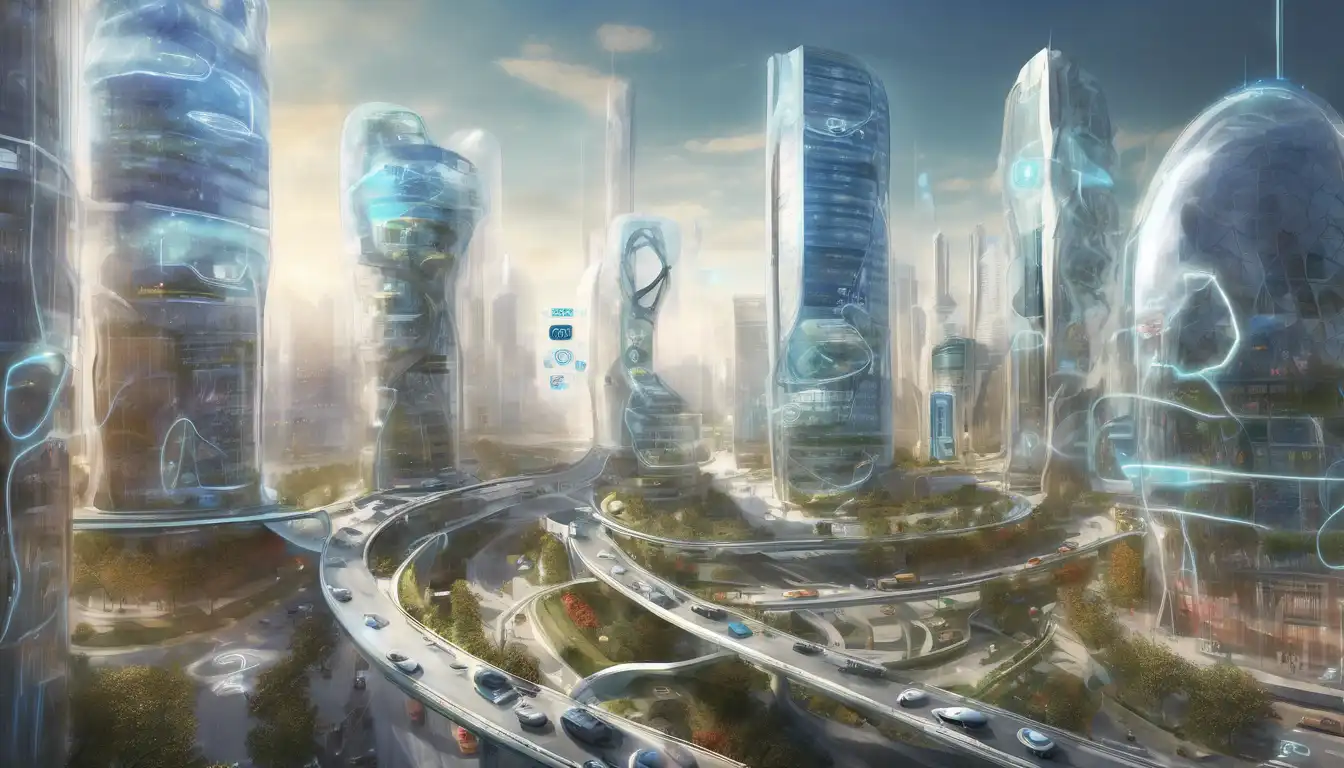The Role of IoT in Shaping Smart Cities
The Internet of Things (IoT) is revolutionizing the way cities operate, making them smarter, more efficient, and more sustainable. By connecting devices, vehicles, and infrastructure to the internet, cities can collect and analyze data to improve services and the quality of life for their residents. This article delves into the future of IoT in smart cities, highlighting its potential to transform urban living.
Understanding IoT and Its Importance in Urban Areas
IoT refers to the network of physical objects embedded with sensors, software, and other technologies to connect and exchange data with other devices and systems over the internet. In urban areas, IoT can monitor and manage traffic flows, reduce energy consumption, and enhance public safety, among other benefits.
Key Benefits of IoT in Smart Cities
- Improved Traffic Management: IoT devices can analyze traffic patterns in real-time, reducing congestion and improving commute times.
- Energy Efficiency: Smart grids and IoT-enabled devices can optimize energy use, significantly lowering costs and environmental impact.
- Enhanced Public Safety: From smart streetlights to surveillance systems, IoT technologies can help prevent crime and respond more quickly to emergencies.
- Waste Management: Smart bins and IoT systems can streamline waste collection, making cities cleaner and more sustainable.
Challenges and Considerations
Despite its benefits, the integration of IoT into smart cities faces challenges, including privacy concerns, cybersecurity risks, and the need for significant investment in infrastructure. Addressing these issues is crucial for the successful implementation of IoT technologies.
The Future Outlook
The future of IoT in smart cities is bright, with advancements in AI and machine learning further enhancing its capabilities. As cities continue to grow, IoT will play a pivotal role in ensuring they remain livable, efficient, and sustainable. The potential for innovation is limitless, from autonomous vehicles to smart buildings that adapt to our needs.
For more insights into how technology is transforming urban environments, check out our articles on urban development and sustainable cities.
In conclusion, IoT is set to redefine the fabric of urban living, offering solutions to some of the most pressing challenges faced by cities today. By embracing IoT, cities can not only improve the quality of life for their residents but also pave the way for a more sustainable and efficient future.
